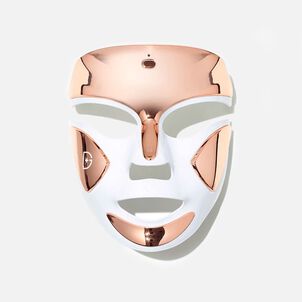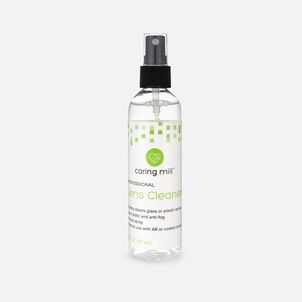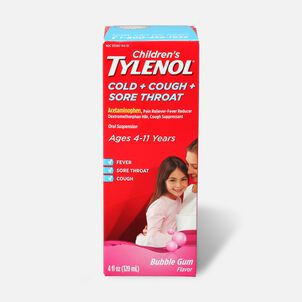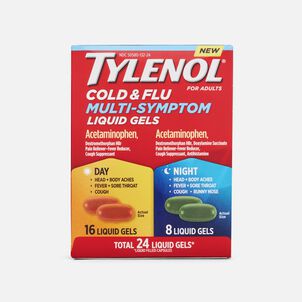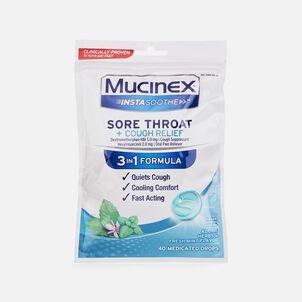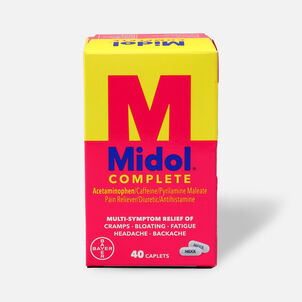 | SHOP NOW
| SHOP NOWFew things are more stressful than going to the pharmacy to fill a new prescription. Without calling your health insurance company, you may not know if you have coverage. And even with health insurance coverage, it isn't easy to know how much you will pay out-of-pocket.
Whether your family is relatively healthy or grappling with a chronic illness, most Americans worry about the high cost of prescription drugs. According to the National Center for Health Statistics, nearly half of the U.S. population uses prescription drugs, and many Americans struggle to pay for them. While some federal and state lawmakers have tried to lower the cost, many folks are still spending more than they can afford.
It may be a while before lawmakers try to lower the cost of other prescription drugs. In the meantime, we'll cover what to know about generic medicine vs. name-brand drugs and how the switch may benefit your wallet.

What is a generic drug?
A generic drug has the same dosage, safety, strength, quality, performance, and method of consumption as a brand-name drug, according to the Federal Drug Administration (FDA). Generic drugs go through an intense review process before getting FDA approval. The purpose of the review is to make sure the generic drug is as safe and effective as the name-brand version.
How do generic medications get FDA approval?
It's normal to worry that a generic medicine may not match the quality of a name-brand drug, can rest assured knowing generic medications go through a strict FDA approval process—you can learn more at the FDA Generic Drugs Program website.
Before the FDA approves generic medicine, the company must go through a rigorous review process. The purpose is to prove the generic medication can be a safe and effective substitute for a name-brand drug.
To kick-off the process, the company must submit an abbreviated new drug application (ANDA) showing the generic medication is the same as the name-brand drug in the following ways:
- The generic medicine must have the same active ingredient as the name-brand drug
- It must have the same strength, use, form, and patients must take the medication the same way
- The FDA also must sign off on the inactive ingredients
- The generic medicine must follow the same strict manufacturing standards as the name-brand version
- The FDA must approve the generic medicine container, and it must have the same label as the name-brand drug
Why is generic medicine cheaper than name-brand drugs?
The biggest perk of generic medicine is it may be significantly cheaper than the name-brand version. Generic drugs are less expensive because they don't require the same animal and human studies to prove their safety and effectiveness. Also, the FDA may approve multiple applications to create one generic medication. Less upfront research and more marketplace competition can mean lower generic medicine costs.
Is there a generic version of my name-brand drug?
If you're trying to figure out if there is a generic version of your name-brand drug, you can start by asking your local pharmacist, or try one of these other options:
- Search the FDA's database - Drugs@FDA, a database of FDA-approved drugs, allows you to search from drugs on your computer or via the mobile app.
- Check the Orange Book - You can search the Orange Book for generic medicine by typing in the name-brand drug or its active ingredients.
- Scan the First Generics List - The First Generic Drug Approvals list includes the most recent generic medicine FDA approvals.
If your search still comes up short, the name-brand drug company may have exclusive rights within the marketplace. This period allows companies to recoup their research and marketing costs, but once it ends, the FDA may approve a generic version of the drug.
When do I need a brand-name drug?
It can be stressful to fill a prescription, especially when you're unsure how much it will cost. Depending on how your doctor wrote the prescription, it may be possible for your pharmacist to make substitutions for a generic drug. But if your doctor specifies that you must use the name-brand, your pharmacist can't swap it without speaking with your doctor first.
While there may be times when your doctor doesn't know about a generic medication, there may be other instances where the name-brand is necessary. For example, if your doctor prescribes a narrow therapeutic index drug, minor changes can make a big difference. According to the FDA, small changes in the dose or concentration in your blood could cause serious health complications, with the possibility of life-threatening results. With these risks in mind, your doctor may opt for a brand-name drug to be safe.
If the FDA approved a generic version of your brand-name drug, you might be eager to save money by making the switch. But unfortunately, some patients don't tolerate the generic medicine as well. A study from the American Journal of Therapeutics found some patients not tolerating the switch with an antidepressant medication. If you start having troubling side effects or the generic medication doesn't work as well, your doctor may recommend switching back to the original brand-name drug.
Talk to your doctor about generic medicine vs. brand-name drugs
Although generic medicine may be the right choice most of the time, there are instances where your doctor may recommend the brand-name version. Sometimes, there isn't a generic version available, or switching to a generic drug could present a health risk. Even if your doctor signs off on the generic drug, there are no guarantees your body will tolerate the new medication. Like any prescription, you should always discuss generic medicine vs. name-brand drugs with your doctor before making any decisions.
It may be disheartening to learn a name-brand drug is the best or only option. But there is one silver lining: you may use your health savings account (HSA) or flexible spending account (FSA) to cover the cost of your prescription medications. These tax-savvy accounts offer a discount on these eligible medical expenses, which puts more money back into your pocket for other priorities.
-
Thank you for visiting the HSA Store Learning Center™. Don’t forget to follow us for more helpful tips on Facebook, Instagram, and X (formerly Twitter).

